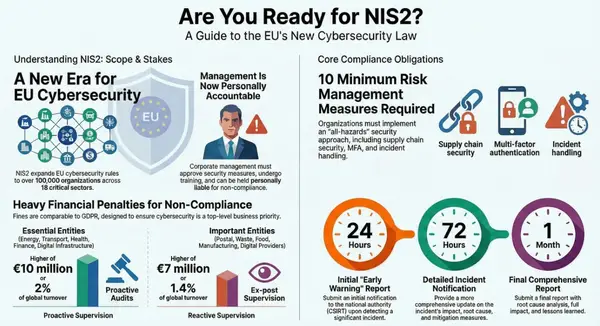Introducing the Sensitive Data Compliance Navigator: Simplifying U.S. State Privacy Law Compliance
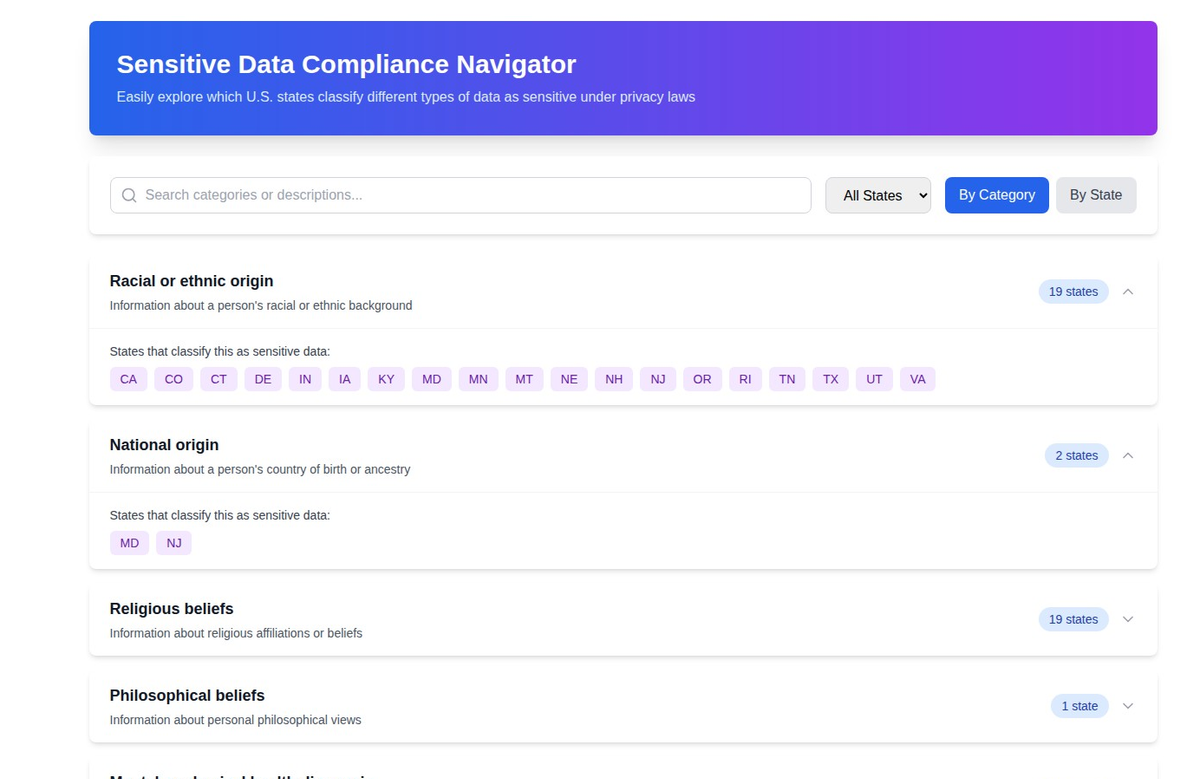
Making sense of sensitive data classifications across 19 state privacy laws
Executive Summary
As U.S. state privacy laws continue to evolve, organizations face an increasingly complex challenge: understanding which types of personal data are classified as "sensitive" across different jurisdictions. Today, we're excited to introduce the Sensitive Data Compliance Navigator, a free interactive tool that transforms a complex 34-category compliance matrix into an intuitive, searchable interface.
The Challenge: A Patchwork of State Privacy Laws
With 19 states having enacted comprehensive privacy laws, each with its own definition of sensitive data, compliance teams are struggling to keep track of varying requirements. What's considered sensitive in California might not be in Texas. Colorado has unique requirements for neural data, while New Hampshire has specific definitions for financial information.
This regulatory complexity creates real risks:
- Compliance violations due to misunderstanding state-specific requirements
- Over-classification leading to unnecessary operational burden
- Under-classification exposing organizations to regulatory penalties
- Inefficient resource allocation from manual cross-referencing of laws
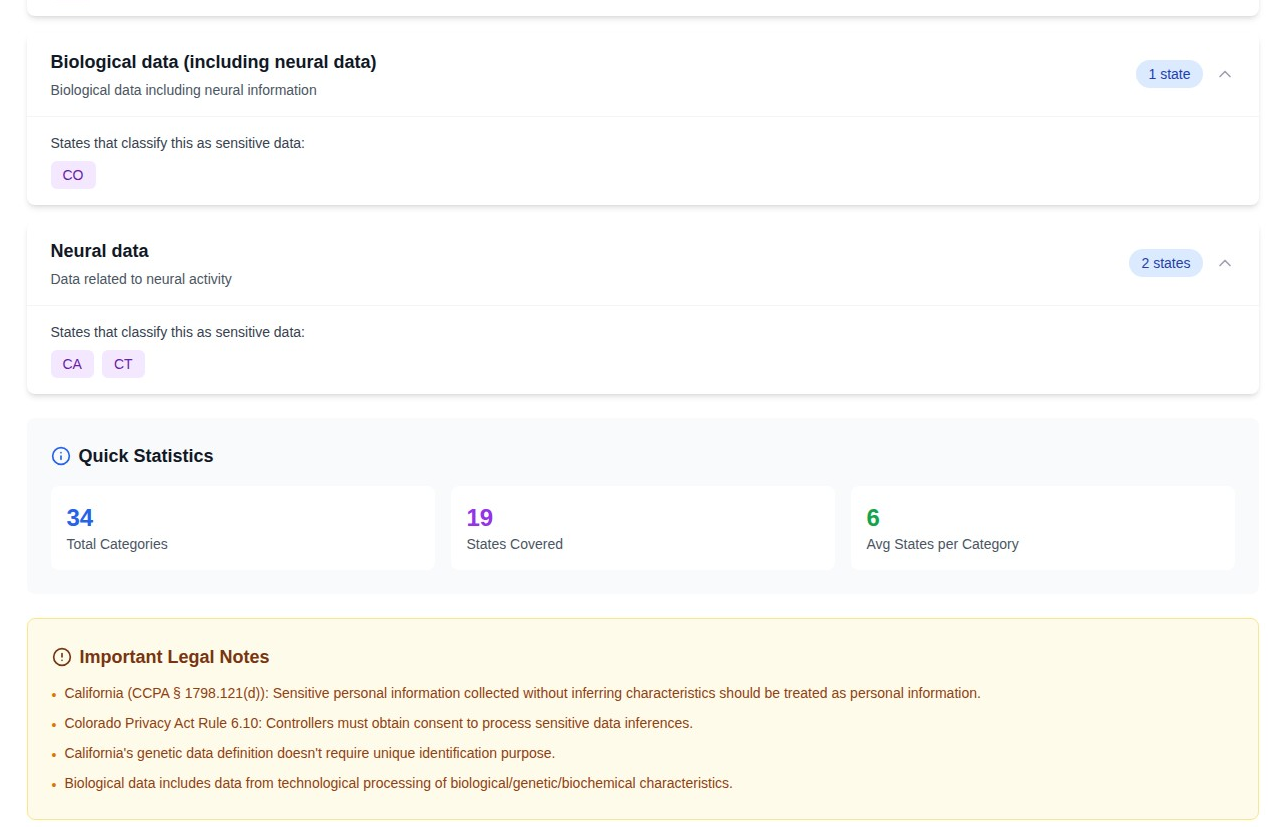
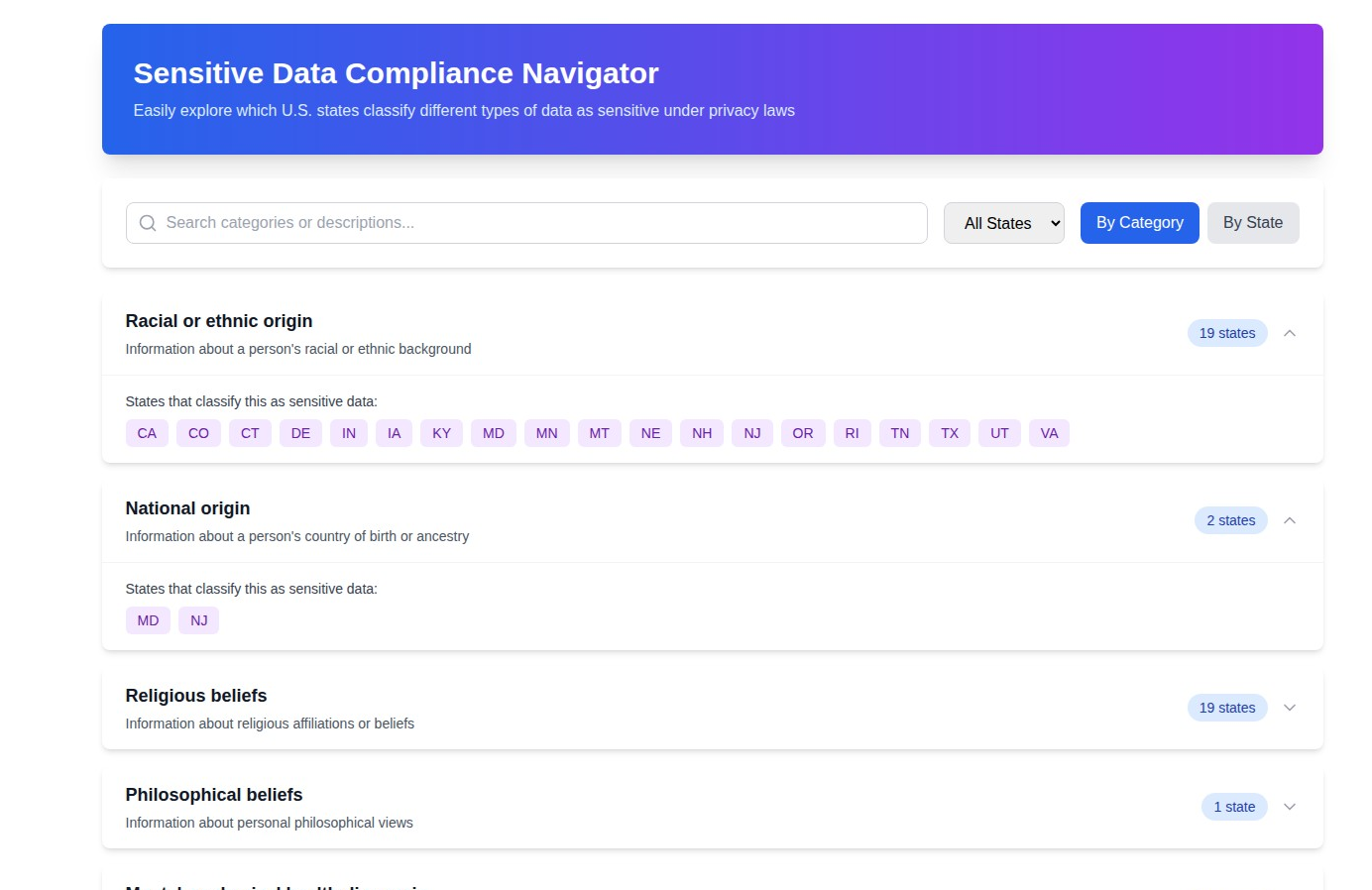
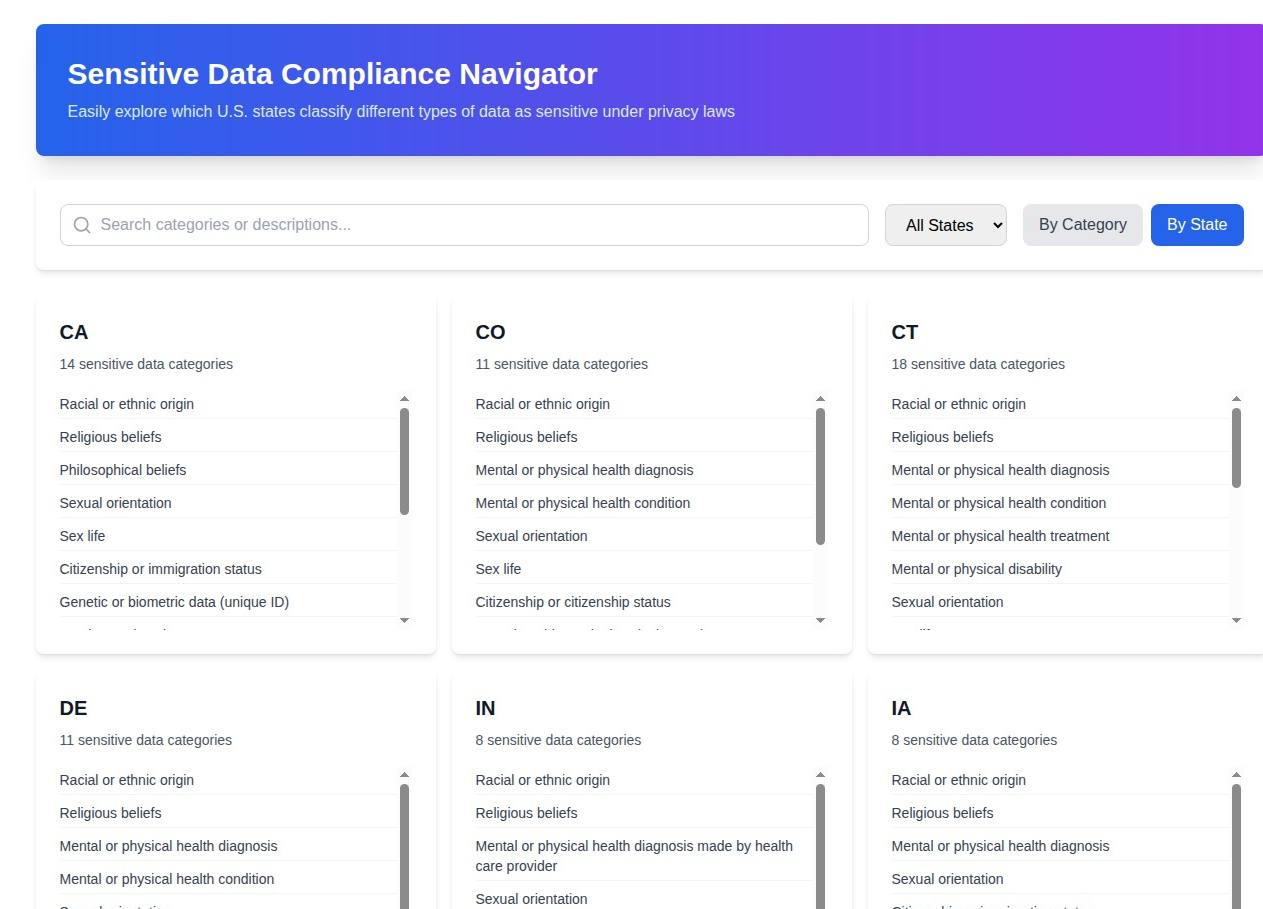
The Solution: Interactive Compliance Intelligence
The Sensitive Data Compliance Navigator addresses these challenges by providing:
1. Comprehensive Coverage
- All 19 states with comprehensive privacy laws
- 34 distinct sensitive data categories
- Special notes for state-specific definitions and exceptions
2. Dual Navigation Modes
- By Category: See which states classify specific data types as sensitive
- By State: View all sensitive data categories for a particular jurisdiction
3. Intelligent Search
Search across category names and descriptions to quickly find relevant classifications. For example, searching "health" instantly shows all health-related sensitive data categories.
4. Real-Time Filtering
Filter by state to see only the categories relevant to your jurisdiction, making it easy to focus on specific compliance requirements.
5. Visual Compliance Mapping
Color-coded indicators and expandable details make it easy to understand coverage at a glance, with special alerts for categories requiring extra attention.
Key Insights from the Data
Our analysis of state privacy laws reveals several important patterns:
- Racial/ethnic origin and religious beliefs are the most universally protected categories (19 states each)
- Health-related data shows significant variation, with states distinguishing between diagnoses, conditions, and treatments
- Financial data definitions vary significantly, with CA, NH, and CT each having unique requirements
- Emerging categories like neural data (CA, CT) and biological data (CO) signal future trends
Use Cases
The Navigator serves multiple stakeholder needs:
Privacy Officers: Quickly assess which data elements require enhanced protection across operating jurisdictions
Legal Teams: Ensure accurate interpretation of state-specific requirements during privacy assessments
Product Teams: Build privacy-by-design features that respect state-specific sensitive data classifications
Compliance Auditors: Verify that data handling practices align with jurisdictional requirements
Important Considerations
While the Navigator simplifies compliance research, users should note:
- Legal Nuances: Some states have specific conditions (e.g., California's CCPA § 1798.121(d) regarding inferences)
- Regular Updates: Privacy laws evolve; always verify current requirements
- Professional Guidance: The tool supplements but doesn't replace legal counsel
Looking Ahead
As more states consider privacy legislation and existing laws evolve, the Sensitive Data Compliance Navigator will continue to be updated. We're committed to maintaining this as a free resource for the privacy community.
Access the Tool
Visit the Sensitive Data Compliance Navigator at https://pii.compliancehub.wiki/ to start exploring sensitive data classifications across U.S. state privacy laws.
About the Sponsors
This tool is proudly sponsored by:
For questions or suggestions about the Sensitive Data Compliance Navigator, please contact us.




